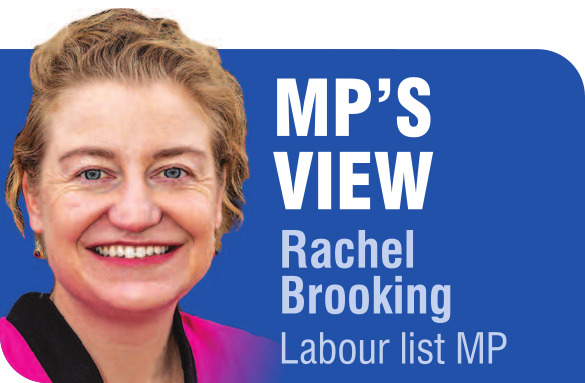
Without any warning or consultation, the government forced through a law change last week that will stop thousands of women getting the pay they deserve.
It is a cynical move and it’s been rushed through Parliament because the government simply cannot make their numbers work.
I stood alongside hundreds of union members, workers, mothers, and concerned New Zealanders at the Dunedin protest last Friday in the Exchange, to send Luxon a clear message — women deserve pay equity.
Our women, teachers, care and support workers deserve better.
I know many of you share my concerns, as evidenced by the number of messages I’ve received from concerned constituents in the past week alone.
Many of you are not just upset at the changing of the law, but also at the lack of respect shown by the government to rush a law change like this through Parliament.
The Bill was announced under urgency on Tuesday last week and then debated through all stages without referral to select committee.
During this time I took seven calls on the Bill in the house with little to no explanation or answers from the minister. It was passed into law late Wednesday night.
In 2020, Nicola Willis and Erica Stanford voted in favour for pay equity, Willis saying at the time she was proud to stand in the House and support the bill in its final reading.
Five years on and she is now calling pay equity a “grievance industry’’, while voting to change the law overnight.
There have already been multiple settlements since 2020, with a further 33 current claims affecting 150,000 female workers now needing to be restarted, including teachers, social workers, nurses and healthcare workers.
Instead of building on the work of successive governments and focusing on bringing women’s pay into balance with men’s, National has turned its back.
Labour stands proudly for pay equity.
We will stand up now in the hope our daughters and future generations don’t have to.












